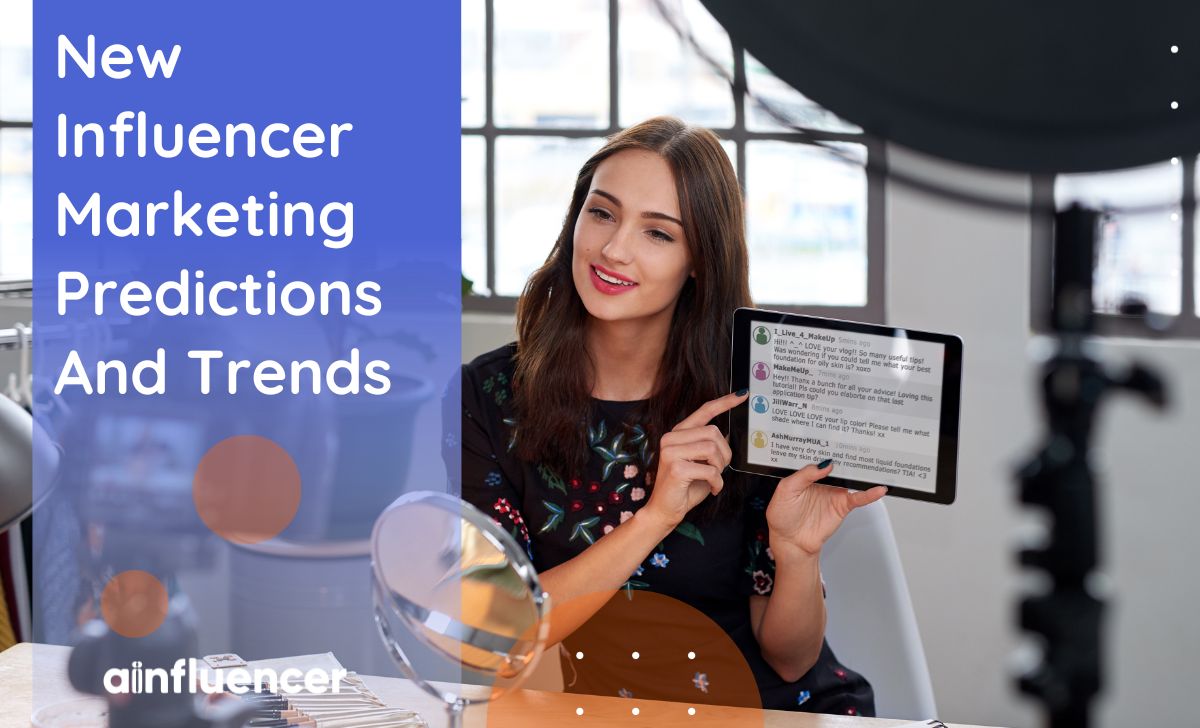As we step into 2024, the marketing landscape continues to evolve, influenced by technological advancements, shifting consumer behaviors, and the growing importance of authenticity in marketing. Understanding new influencer marketing predictions is crucial for students, marketers, and influencers alike, who must navigate this dynamic field with agility and insight.
In recent years, influencer marketing has transcended beyond mere product endorsements, becoming a key element in storytelling, brand identity, and customer engagement. This transition has opened new avenues for creativity and personalization, enabling brands to forge deeper connections with their audience.
As students explore the realms of marketing and communication, it’s essential to grasp the nuances of new influencer marketing trends to harness its potential effectively.
Current Trends in Influencer Marketing
One might equate mastering influencer marketing with the challenge of writing a compelling essay. Just as one seeks guidance to ‘Write my essay‘ with clarity and creativity, understanding new influencer marketing predictions requires a blend of analytical thinking and creative strategizing. It’s about crafting narratives that resonate with audiences, like weaving a story that captivates and informs.
Now, let’s explore some of the latest trends in influencer marketing in 2024:
1. Authenticity: The Heart of Connection
In the influencer world, authenticity has become more than a buzzword; it’s the core of successful campaigns. Consumers are increasingly savvy, seeking genuine connections with influencers whose values align with their own. This shift has prompted a move away from polished, curated content towards more raw, unfiltered glimpses into influencers’ lives.
Today, influencers are viewed as partners in brand storytelling rather than mere advertising vessels. This partnership approach fosters a deeper authenticity, as influencers are more invested in the products and brands they endorse. They’re not just selling – they’re sharing experiences and values that resonate with their followers.
This authenticity breeds trust, a currency of immense value in the digital marketing landscape. When influencers genuinely believe in a brand, their endorsements carry more weight, leading to higher engagement and conversion rates. This trend highlights the importance of aligning brand values with the right influencers to build credibility and trust among target audiences.
2. The Rise of Micro-Influencers
While celebrity influencers have long dominated the landscape, there’s a growing trend towards collaborating with micro-influencers. These individuals have smaller but highly engaged and niche audiences. They are often perceived as more relatable and trustworthy compared to their celebrity counterparts.
Micro-influencers offer several advantages for brands. Their audiences, though smaller, are often more engaged and loyal. This leads to higher engagement rates, making micro-influencers valuable for brands looking to tap into specific markets or demographics.
The rise of micro-influencers is reshaping marketing strategies. Brands now focus on building long-term relationships with a network of micro-influencers, leveraging their authenticity and engagement to create more impactful campaigns. This approach also allows for more targeted and personalized marketing efforts.
3. Leveraging Technology for Enhanced Engagement
Technological advancements are revolutionizing how influencers create and share content. From augmented reality (AR) filters to high-quality video production tools, influencers are now equipped to create more immersive and engaging content. This trend is not just about the aesthetic appeal; it’s about creating experiences that captivate audiences.
The use of data analytics in influencer marketing is becoming more sophisticated. Brands and influencers are leveraging data to gain insights into audience preferences, engagement patterns, and content performance. This data-driven approach enables more targeted and effective influencer campaigns.
The platforms for influencer marketing are also evolving. While Instagram and YouTube remain dominant, newer platforms like TikTok are gaining traction. These platforms offer unique features that influencers can leverage to connect with their audiences in novel ways.
4. The Integration of Social Causes
A significant trend gaining momentum is the integration of social causes into influencer marketing strategies. Today’s consumers, especially the younger generation, are increasingly conscious about social and environmental issues. They resonate with brands and influencers who acknowledge these issues and take active steps towards addressing them.
Influencers, with their persuasive power and reach, are becoming advocates for change, promoting causes ranging from environmental sustainability to social justice. This shift has transformed influencers from product endorsers to influential voices in societal conversations. Their role in raising awareness and driving change is becoming a vital aspect of their identity.
For brands, this trend highlights the importance of aligning with influencers who fit their brand image and share their values on social causes. Collaborations rooted in a shared commitment to a cause can lead to more meaningful and impactful campaigns, resonating deeply with audiences who value authenticity and social responsibility.
5. The Personalization of Influencer Marketing
Another emerging trend is the personalization of influencer marketing. With abundant data and analytics tools, brands and influencers can now tailor their content and campaigns to specific audience segments. This level of customization leads to higher relevance and engagement, as audiences feel that the content speaks directly to their interests and needs.
Segmentation strategies in influencer marketing are becoming more refined. Influencers can create content that appeals to specific demographics, interests, and behavioral patterns by analyzing audience data. This targeted approach not only enhances engagement but also increases the effectiveness of marketing campaigns.
While personalization offers numerous benefits, it also presents challenges. Striking the right balance between personalization and privacy is crucial. Brands and influencers must navigate these waters carefully, ensuring that their efforts to personalize do not infringe upon the privacy and preferences of their audience.
New Influencer Marketing Predictions: Final Thoughts
As we look towards 2024, the influencer marketing landscape is poised for continued evolution. The trends discussed here – the emphasis on authenticity, the rise of micro-influencers, and the leveraging of technology – are shaping a more dynamic, engaging, and effective influencer marketing environment.
For students and aspiring marketers, understanding these trends is crucial. They offer valuable insights into the future of marketing and the strategies that will drive success in the coming years.
In conclusion, new influencer marketing predictions show that 2024 is about forging genuine connections, embracing technological innovations, and understanding the power of data. By staying abreast of these trends and adapting strategies accordingly, brands and influencers can create compelling narratives that resonate with audiences, ultimately driving engagement and growth in this ever-changing digital world.
FAQs
Q1. How Can Brands Benefit From Collaborating With Micro-Influencers Over CelebrityInfluencers?
New influencer marketing predictions show that collaborating with micro-influencers offers several advantages for brands. While micro-influencers have smaller audiences, they are often more engaged and loyal. This results in higher engagement rates, making micro-influencers valuable for brands looking to tap into specific markets or demographics.
Brands are now focusing on building long-term relationships with a network of micro-influencers, leveraging their authenticity and engagement to create more impactful and targeted campaigns.




![Read more about the article What Is Walmart Creator Program: [The Comprehensive Break-down + Best Alternative in 2024]](https://blog.ainfluencer.com/wp-content/uploads/2023/12/Copy-of-Ainfluencer_Content_Images-12-1-300x182.jpg)




